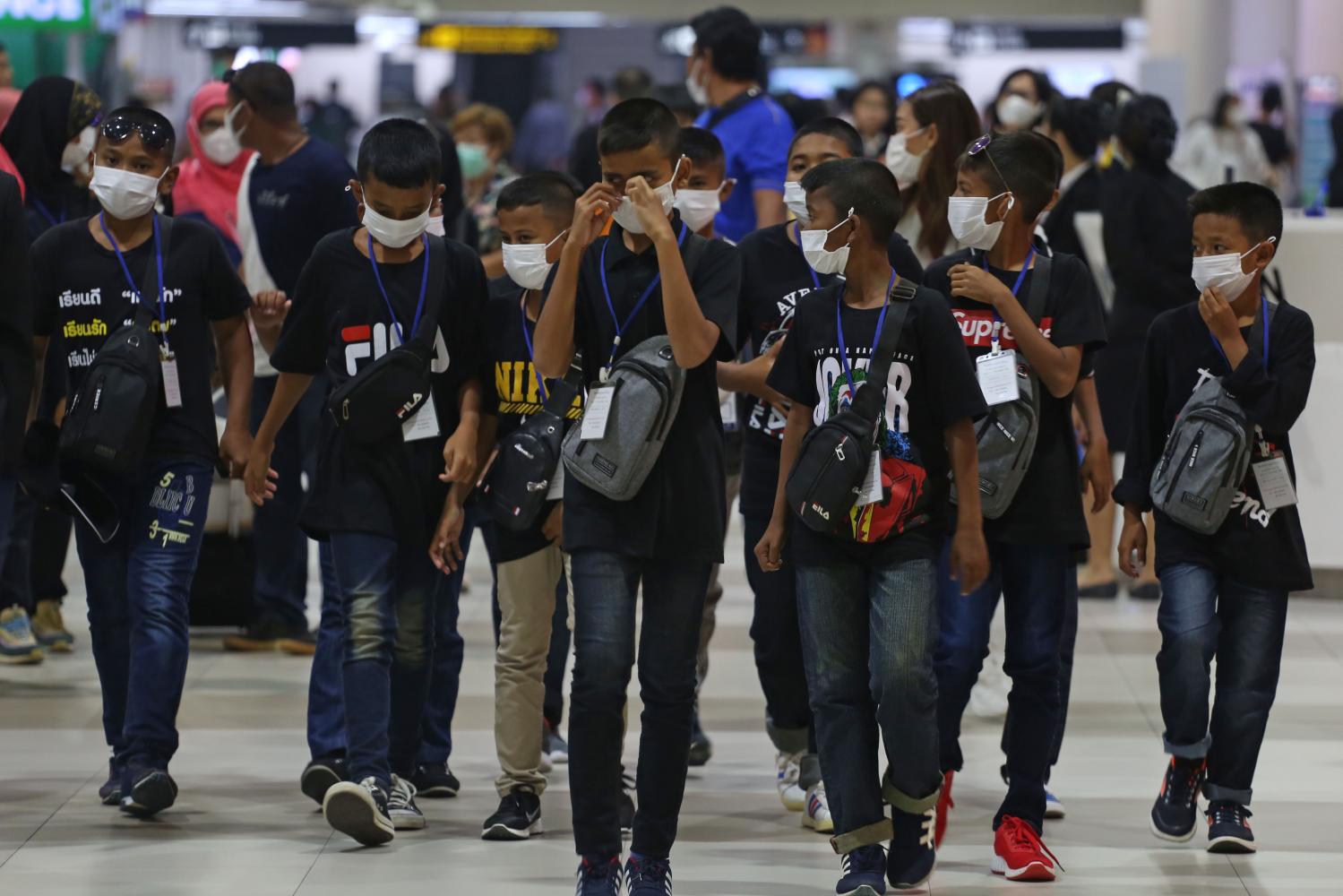
The government is putting face masks and alcohol-based hand sanitiser on the state price control list as part of efforts to deal with the deadly virus outbreak.
Commerce Minister Jurin Laksanawisit, who chaired the central committee on prices of goods and services on Monday, said the committee approved inclusion of face masks and alcohol-based hand sanitiser on the list and will propose the move to the cabinet Tuesday.
Once on the price control list, manufacturers, distributors, exporters and importers have to inform the Internal Trade Department the production cost, sales prices, production volume, export and import volume and stocks as wells as price labels.
Those who export more than 500 pieces need to gain prior approval from the department.
Similar measures are applied to hand sanitiser, except for the limit on export volume as there are still adequate quantities for domestic demand.
"The latest measures are just short-lived and will last until the epidemic passes," said Mr Jurin.
The price control list covers essential items for daily use, such as food, consumer goods, farm-related products, paper, petroleum and medicine.
There are 170 items on the state priority watch list, 52 of which are the price control list.
Mr Jurin said the inclusion of the two products into the price control list is essential, because the demand for the face masks has surged to 40-50 million pieces per month after the new virus outbreak from 30 million pieces a month previously.
Thailand produces about 30 million pieces a month.
Whichai Phochanakij, director-general of Internal Trade Department, said the government may limit face mask purchases to 10 pieces per person per purchase, considered sufficient for 15 days.
Mr Whichai said once put on the price control list, those who are found to hoard or charge unfair prices will be subject to not more than seven years in jail or fined up to 140,000 baht, or both under the Price of Goods and Services Act of 1999.
Those who refuse to comply will face five years of imprisonment, a fine of not more than 100,000 baht, or both.
